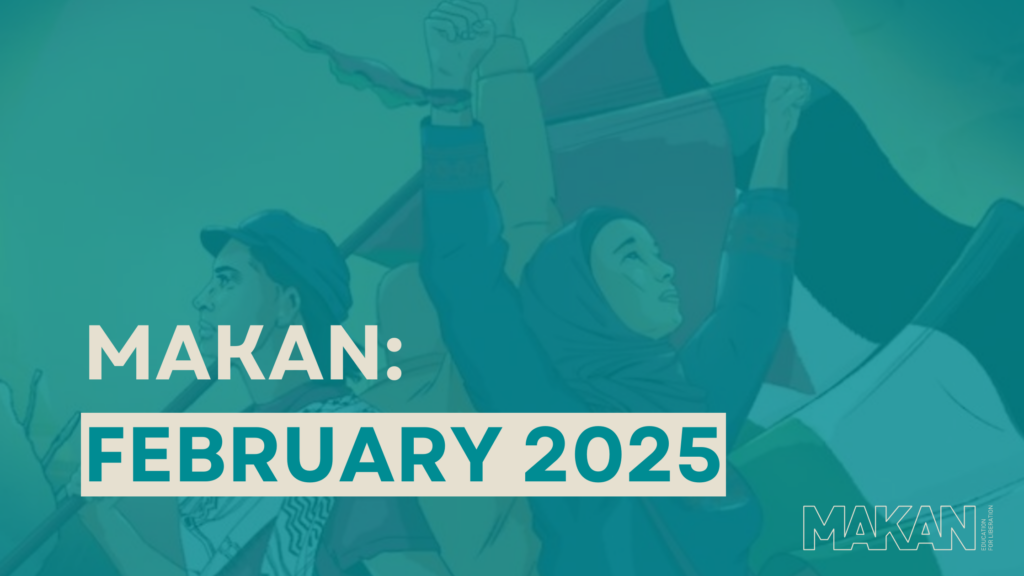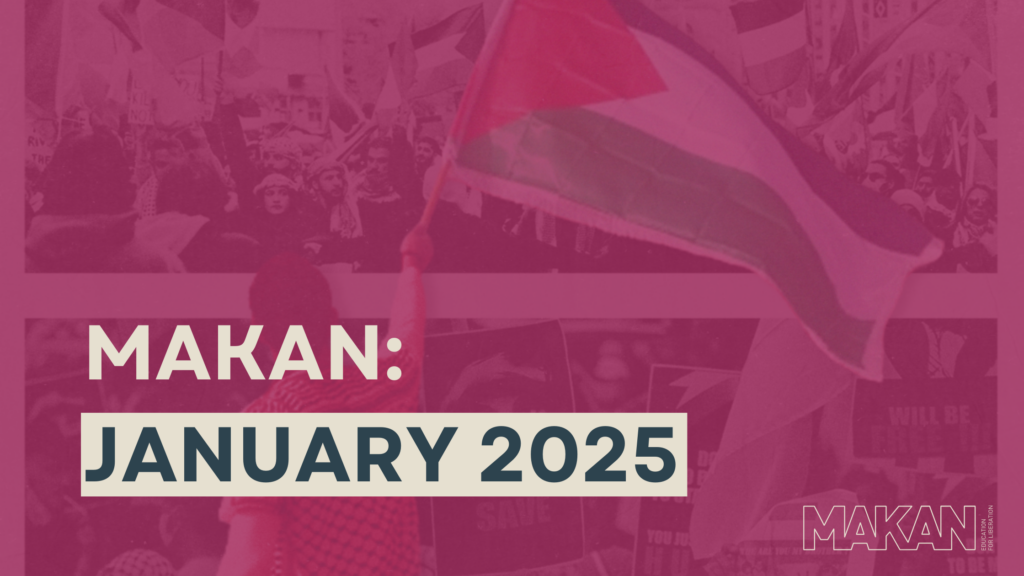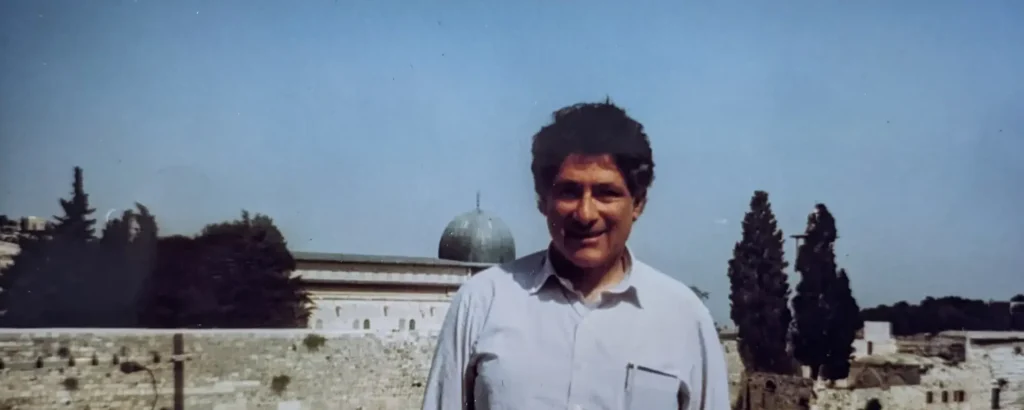Making Room for Growth: Behind the Scenes with Makan’s Educational Programmes
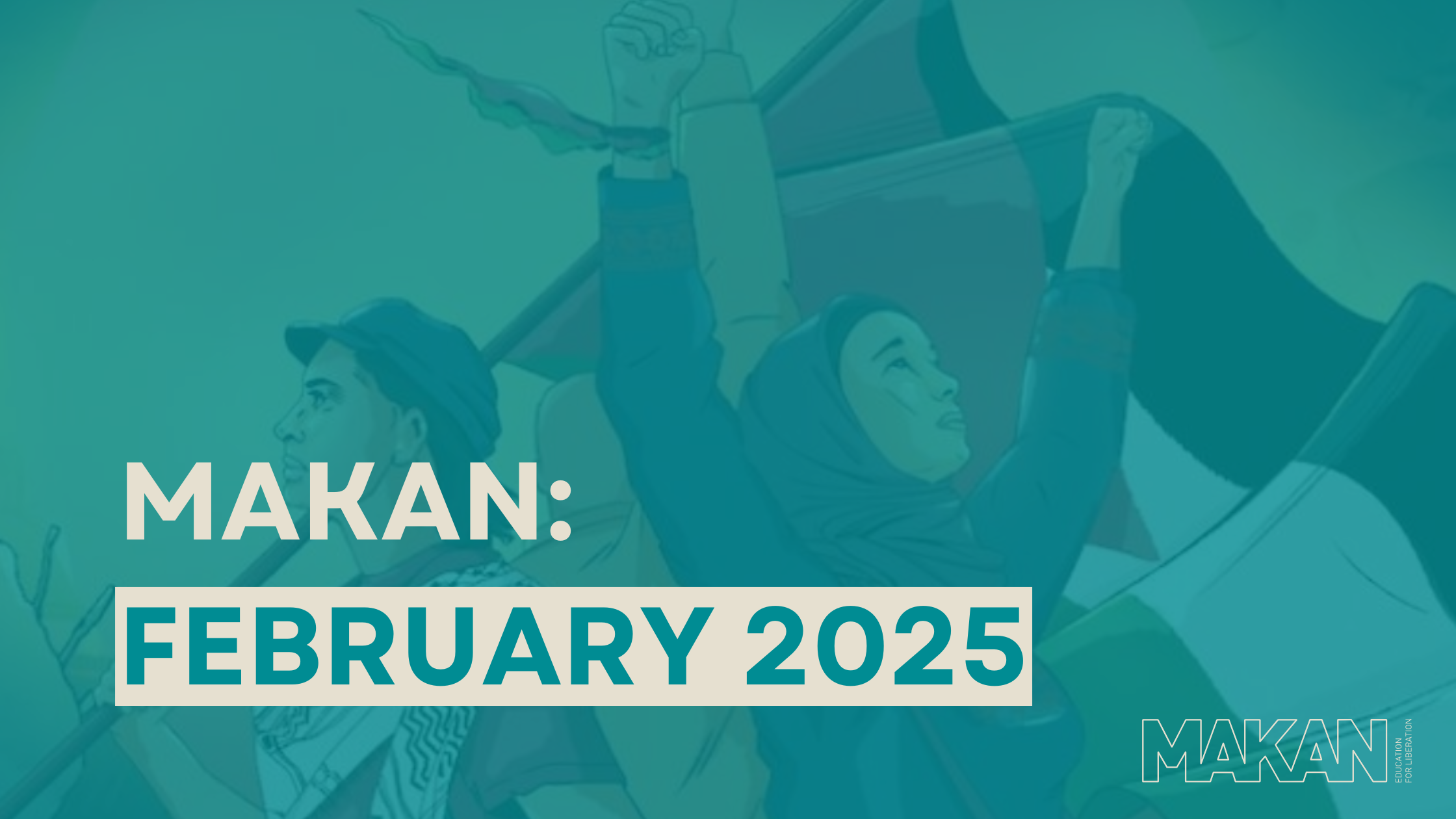
With a renewed sense of urgency across sectors in the wider liberation movement, the desire for political education is growing and growing. As a result, February probed us to reflect on what is required to build transformative educational infrastructure. As a result, Makan’s team has been focusing on the critical question of how we can take our existing educational workshops and rethink their structures and objectives in order to meet as many people’s needs as possible without compromising the quality of the work itself.
Until recently, Makan’s work has, for most part, taken place behind the scenes – both in terms of how our team collectively builds our resources and trainings and also how we engage with people to take part in the workshops themselves. Before 2021, we approached our work in an a la carte educational impact fashion – attempting to accommodate a modest number of participants in each training who had the potential to have a big impact in the social justice and wider liberation movement. As a small team, facing huge demand for our work, our strategy for growing our educational programmes has regularly come up against the limitations of our capacity and felt difficult to navigate. How can we meaningfully engage with a multiplier effect for our work? This was the question that February asked of us.
Earlier last month, we launched a call for applications for our Educational Facilitator Training Programme – and received over 50 submissions by activists, educators, and organisers from around the world. We quickly realised that our standard facilitator programme, which is tailored for people who have participated in our workshops and are already very familiar with our work, wouldn’t be suitable to provide applicants with the kind of in-depth learning journey to engage fully with Makan’s pedagogical practices and educational objectives and interventions. However, we took this influx of interest as an invitation to regroup and build a new curriculum for the large number of people who would like to become educational facilitators and help us deliver our workshops on a mass scale – and this will take priority in our work over the coming few months.
We also delivered our first mini lecture of the year on ‘Settler Colonialism & Imperialism’ as a way of priming our audiences for the mini series we’re planning to hold online throughout March: Settler Colonialism & Ecological Violence in Palestine and Connecting Israel, Imperialism & the Climate Crisis. We’ve shifted our thinking around mini-lectures as spaces where we not only educate our audiences but as a useful way to uplift partner organisations’ and their critical work. Our educational work and our partners’ campaigning work are two sides of the same coin. As a result, we have been thinking about how we can do more to use our pedagogical knowledge, educational strategies, and spaces to showcase our partners’ campaigns and incredible resources and educate our audiences. To that end, we partnered with our colleagues at 7amleh in February to co-create the first iteration of this work: ‘Reconnecting Gaza, Empowering the Future’ that will take place on Tuesday 18 March from 7.00pm – 8.00pm London time. This webinar builds on 7amleh’s report publication, ‘Gaza Telecommunications Infrastructure: Assessment of Damages and Humanitarian Impact’. Our Programmes team read through 7amleh’s report and collectively thought through how to:
- Break down the information so it reaches people who may not be familiar with telecommunications, and emphasise the importance of telecommunications and digital rights
- Anchor this analysis within a wider framework of Israel’s policy of de-development in the Gaza Strip
- Examine the telecommunications industry as a site of neoliberal development
- Amplify 7amleh’s calls to action and recommendations
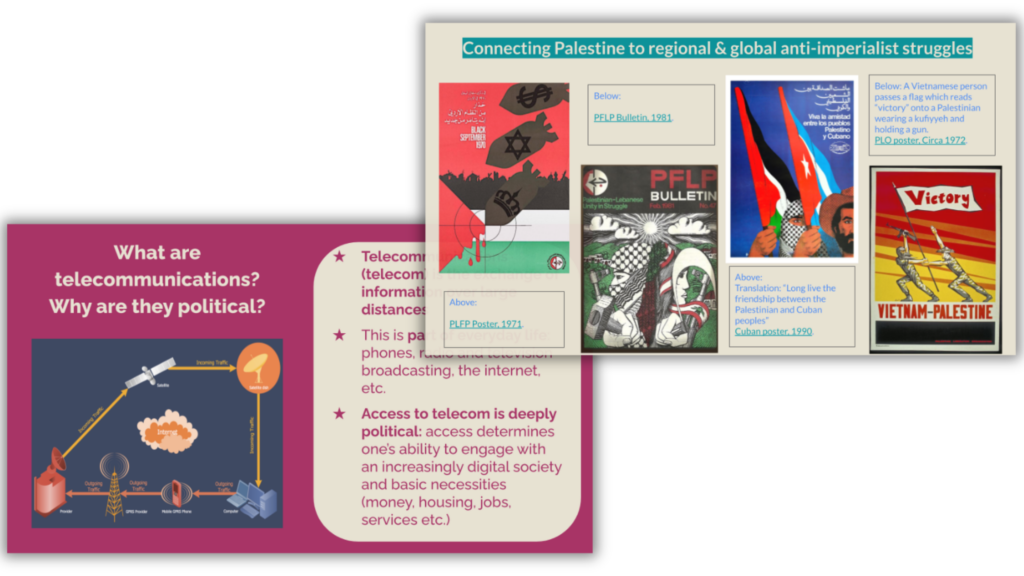
Over the course of the month we engaged with a wide range of research to build and expand our educational materials, including:
- Sara Roy, “The Gaza Strip: The Political Economy of De-development”
- Addameer, “Detention and Transitional Prisons: A Station for Torture and Ill-Treatment of Palestinian Prisoners and Detainees”
- Andreas Malm, The Destruction of Palestine is the Destruction of the Earth
- Muna Dajani’s scholarship
- Elaine C. Hagopian, “The Primacy of Water in the Zionist Project”t
- Walaa Alqaisiya, Decolonial Queering in Palestine
- KOHL, “A Lexicon for Bridging Decolonial Queer Feminisms and Materialist Feminisms”
- British Palestinian Committee (BPC), “New report catalogues depth of UK’s military collaboration in Israel’s assault on Gaza”
- Frantz Fanon, Black Skin White Masks
In the coming weeks, we will be holding our ‘Reconnecting Gaza, Empowering the Future’ webinar with 7amleh, our ‘Connecting Israel, Imperialism & the Climate Crisis’ workshop, and developing three new in-depth workshops based on our ‘Gender, Sexuality & Anti-Colonialism in Palestine’ workshop template for a workshop series with our friends at Queercircle.
We’ll check back in at our next roundup with further updates on our work behind the scenes, our upcoming public events, the lessons learned by our Programmes team, and resources produced by the wider liberation movement that inspire our work.
Until liberation,
The Programmes team
Explore
Palestine 101
Learn the basics
Related posts
Making Room for Growth: Behind the Scenes with Makan’s Educational Programmes
With a renewed sense of urgency across sectors in the wider liberation movement, the desire for political education is growing and growing. As a result,…
Towards Long-Term Transformative Education: Behind the Scenes with Makan’s Educational Programmes
After a year of meeting the increased demand in our work – training nearly 2,000 trade unionists, cultural workers, students, educators, grassroots organisers and holding…
Edward Said & The Question of Palestine at London’s Royal Festival Hall
Makan’s Director, Aimee Shalan, was honoured to be invited by the Palestine Festival of Literature and Fitzcarraldo Editions to MC a landmark event on 20...
